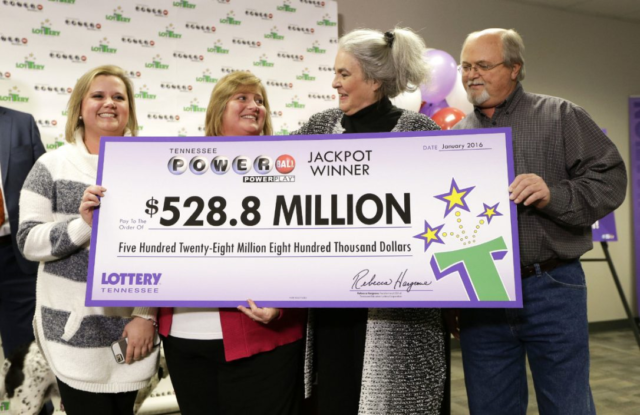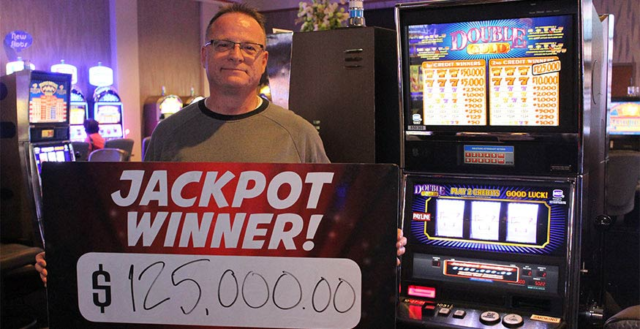Canadian Lotteries – Are the winnings taxed?

Winning is always exciting and the happiest moment. Winning the Canadian lottery you just fly away to fantasy and dream about what you wish to do with your winning prize. Many winners might go to exotic and luxury travel, most will buy a brand new car or luxury home and few may even preserve money for the future or their children. The happiest thing to know is that you will be able to enjoy the entire lottery winning amount as it is tax-free.
Winning in Lotteries
Winnings from a Canadian lottery such as Lotto Max or 649 are considered to be windfalls. Even winnings from a sweepstakes or lottery sponsored by a charitable organization are generally tax-free. Everything from your local hockey team’s 50/50 draw to the Big Brothers/Big Sisters travel lotto vouchers is included in the windfall category and therefore exempt from tax.
The Canada Revenue Agency (CRA) does not require you to pay tax on the winnings themselves. However, as with most other types of income, you will be subject to tax on any money your windfall generates. If you simply put your millions in the bank, only the interest your money makes will be taxable.
Winning at the Casinos

Canadian casino winnings will be treated the same as other lotteries and usually remain tax-free. However, over the past few years, CRA has begun to examine its policies for professional gamblers, classifying “winnings” as business income and therefore taxable like any other business income. At the same time, this also means professional gamblers can claim business expenses. For example, if you’re considered to be a self-employed professional poker player under this theory, you could deduct all of your travel expenses, tournament fees, etc. from any winnings. If you didn’t win enough to cover the expenses, you’d be able to claim a business loss.
Canucks will not have to pay taxes on horse racing, sports betting, lotteries, online casinos and any other games of chance. However, if you earn interest on your winnings, you must legally declare that on a T5 form. This interest is taxable. Should you be caught not paying taxes on this, you could be fined.
On the other hand, if you are a full-time gambler, online or offline, and make a living from betting, you are required to file taxes. Professional poker players, blackjack players or any other professional gambler are viewed as operating their own freelance business. This is taxable in Canada.
So far, the Canada Revenue Agency is slow to assess and audit people whose source of income comes from gambling. The reason is that they are said to operate a business and those business profits are taxable. However, this same business can accumulate significant losses which reduce income and income from other businesses.
Canada Revenue Agency’s position is that “an individual may be subject to tax on income derived from gambling itself if the gambling activities constitute carrying on the business of gambling.” Note that this includes all currencies besides just CAD, although it’s questionable if Bitcoin gambling is included here.
Winning contests at the workplace

Prizes won from your place of employment aren’t always tax-free. Cash awards or near-cash awards such as gift cards, are almost always considered to be taxable employment benefits. This means the award will be considered as part of your income. Your employer will deduct income tax, Canada Pension Plan and in some cases, even Employment Insurance premiums on this type of award. Your T4 will have the amount of the taxable benefit listed in box 40.
So if the lottery winnings are considered to be a part of your income. For example, if your workplace has a drawing and you win a cash prize, you must report your winnings as income, making them taxable. Similarly, if you sell lottery tickets and earn a commission for selling winning tickets, you must report your winnings as income.
Winning from the US or Las Vegas

The US Internal Revenue Service (IRS) has a different approach to your lottery winnings than the CRA and considers all winnings to be taxable. As a Canadian winning a US lottery you would still be responsible for American tax obligations. With a lottery winning you would have to file a US tax return. Also if you hit the jackpot at a casino, a good chunk of those winnings is to be withheld by the casino to ensure your tax obligations are met before you even leave the country. Even if you win big from your own home on a US online poker site, for example, your big score will be considered to be American income and taxed accordingly.
So that means you will have to pay taxes on winning anything over USD 1200. If you think you can just not declare it, think again. When you walk up to that booth to happily cash out, 30% is automatically deducted. You don’t even have a say. That said if you are a Canadian Citizen legally working in the U.S.A., you can deduct any gambling losses which occurred in the states and receive a tax refund based upon that.
However, section 40(2)(f) of the Income Tax Act (Canada) frees Canadians from the burden of taxes on a lottery win outside the country, just as Canadians don’t have to pay income tax on Canadian lottery winnings.
Mark Feigenbaum, a U.S. lawyer/accountant and a Canadian accountant who specializes in cross-border taxation, noted that for U.S. “non-resident aliens” (i.e. Canadians who don’t live in the U.S. or don’t have a green card or who are not U.S. citizens), the American IRS withholds 30 per cent tax on winnings. That would be the only tax paid to the IRS for non-resident aliens.
As for the state tax, it depends on the state in which the lottery was run. For many states, there is no state tax paid to residents on its same state-run lottery. For others, there are state taxes on lottery winnings to its residents but not to non-residents of that state.
For U.S. citizens or green card-holders living in Canada (or people living in the U.S.), they would have to pay the graduated rates on that winning (up to the maximum rate of 39.6 per cent) and the same rules with the state tax as said above.
Canadian online gamblers can go into their gaming sessions, safe in the knowledge that their winnings are tax-free. The law goes back to British legislation which stated, in principle, that the winnings that come from placing a bet should not be taxed, while the winnings of a bookmaker taking the bet should be taxed. As such, Canadian players are having the most Canada Wins at online casinos and lotteries that offer big jackpot prizes. Well for the players it is the win and the fun to enjoy whether taxed or not right?